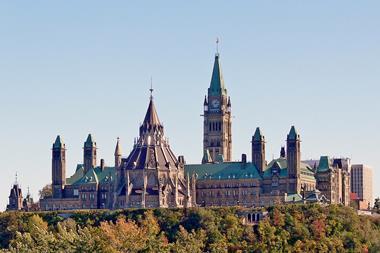Canada to Proceed with Luxury Tax Despite Projected C$2.1bn Impact on Boating Industry

The Canadian government remains committed to implement its controversial luxury tax on boats, automobiles and private aircraft on September 1. This news comes despite the release of a scathing economic-impact assessment from Canada’s Parliamentary Budget Officer (PBO) indicating the tax will lead to significant losses in all three industries with the boating sector taking the biggest financial hit.
Dire Predictions
Parliamentary budget officer Yves Giroux said that in its first year of implementation the luxury tax championed by Justin Trudeau’s Liberal government is estimated to generate tax revenues of C$176m while resulting in sales declines of $628m in the marine, aviation and automotive sectors, with losses projected to grow each year.
Over five years, the PBO estimates the tax will generate government revenues of up to $760m while causing sales declines of $2.9 billion. The office further estimates that 75% of that loss — or $2.1bn — will be incurred by the recreational boat industry.

Tax revenue projections in the assessment are based on today’s sales volumes, and do not account for the anticipated sales declines. Once factored in, the PBO data indicates the government stands to collect less revenue with the luxury tax in place than it does today without it.
In spite of the grim outlook, the Trudeau administration stands firm with its plans to forge ahead with the luxury tax as scheduled.
Job Losses Expected
Facing the prospect of job losses in their constituencies, members of parliament from opposition parties have joined industry associations, trade unions and the Canadian Chamber of Commerce in rallying against the scheme. Conservative MP Adam Chambers, who represents the Simcoe North riding in one of Canada’s busiest boating regions, is a particularly outspoken critic of the luxury tax. “The government neglected to do an economic impact analysis of this tax and now the Parliamentary Budget Officer confirms what industry has been saying for some time. This will have such a significant negative impact on the industry and jobs,” he said. “Most other countries that have introduced similar taxes have reversed them. It is not sound economic policy.”

Chambers added that the PBO estimates do not account for ripple effect impacts in other sectors such as tourism, suggesting actual losses are likely to be higher than estimated.
Many National Marine Manufacturers Association of Canada (NMMA Canada) members were in Ottawa this week as part of a coordinated advocacy effort with regional marine trade associations, aimed at having the tax scrapped. Despite intensive lobbying by the marine, automotive and aviation industries, the severity of the newly-released PBO impact assessment, and a previous economic impact assessment by leading economist Dr Jack Mintz that described the luxury tax as “a sure-fire job killer,” members of the liberal-dominated House of Commons finance committee voted down a range of proposed changes designed to soften the impact of the measure.
The government has been heavily criticized for introducing the luxury tax without consulting industry stakeholders or performing its own economic impact study. Its apparent determination to ignore independent analysis is disappointing, says NMMA Canada president Sara Anghel, who appeared before both the House of Commons and Senate finance committees this week as part of the continuing advocacy effort.

“At least seven different countries have implemented luxury taxes in the past, and in each case the result was the same, with the tax leading to widespread business closures and job losses,” said Anghel. “Once the tax came into effect consumers simply deferred purchases or bought their goods elsewhere, leaving governments with even lower tax revenues.
“Assault on the Boating Industry”
She continued, “Boatbuilders, equipment manufacturers, wholesalers and dealerships already face significant headwinds in the form of COVID-related measures impacting cross-border shipments, inflation, and continuing supply chain uncertainty. They do not need a misguided new tax that will do more harm than good. The luxury tax is an assault on the boat industry.”
When it is implemented on September 1, the luxury tax will be calculated as the lesser of either 20% of the total value of new boats sold for recreational use above the prescribed $250,000 threshold, or 10% of the unit’s full value. Adding insult to injury, the luxury tax will itself be subject to federal sales tax.
For its part NMMA Canada has won some key concessions in the tax fight so far. As originally proposed, the luxury tax would have applied to recreational boats priced at $100,000 or more at retail – a figure that was subsequently raised to $250,000 through successful lobbying efforts

Further, the luxury tax in its original form would have been retroactive to include all boats sold in Canada during the 2021 calendar year, leaving boat dealers to either chase down customers months after final delivery, or be forced to foot the bill themselves.
Industry lobbying succeeded in having boats sold during 2021 considered exempt from the levy. But boats sold at any point during calendar year 2022 remain subject to the luxury tax, unless delivered to end-user customers prior to September 1, 2022.
The legislation enabling the luxury tax, bill C-19, is currently in its final reading in the House of Commons. If approved, the bill will move to the Senate, which has the power to make amendments. The amended bill would then return to the House of Commons for final approval.